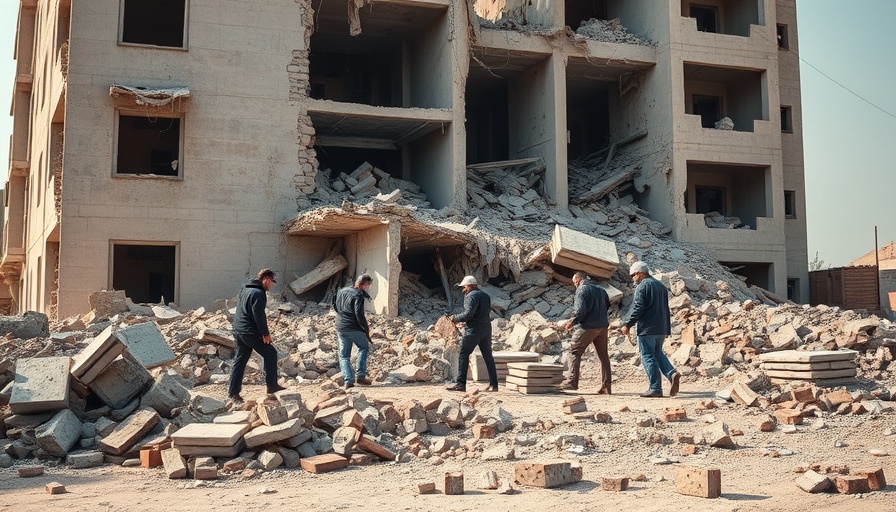
Trump's Shift: A Rare Critique of Putin's Aggression
In an unexpected twist, former President Donald Trump has publicly voiced his discontent with President Vladimir Putin’s recent escalation of military aggression against Ukraine. This stark criticism comes amidst heightened tensions and ongoing discussions for a ceasefire, positioning Trump as a figure straddling the line between diplomatic rhetoric and personal rapport with the Russian leader.
The Fallout from Escalation: Human Cost and Global Repercussions
The situation in Ukraine has deteriorated significantly, as evidenced by a recent barrage of drone strikes that resulted in numerous civilian casualties. Trump's remarks, stating he is “not happy” with the situation, reflect a broader concern regarding the humanitarian impact of Putin’s strategies. This latest round of violence not only escalates the war's devastation but also complicates ongoing negotiations for peace. How will international leaders respond, especially with Trump suggesting potential new sanctions against Russia?
Historical Context: Understanding U.S.-Russia Relations
Historically, the relationship between the United States and Russia has been fraught with complexities. Trump's previous admiration for Putin has raised eyebrows, given Russia's controversial actions in Ukraine. Understanding this context is essential to grasp why Trump's recent comments carry weight—they signal a potential shift in his approach could suggest growing impatience with Putin's disregard for civilian life.
International Reactions: Zelensky's Call for Accountability
Ukrainian President Volodymyr Zelensky echoed the concerns raised by Trump, emphasizing the urgent need for more robust sanctions against Russia. In a statement, Zelensky condemned the attacks as acts of terrorism that warrant international condemnation and action. This alignment of thoughts may prove beneficial for Ukraine in rallying global support against Russian aggression. What sanctions could be imposed, and will they be sufficient to deter further violence?
Future Predictions: The Path Forward for Ukraine and NATO
The escalation of violence raises pressing questions about Ukraine's future and NATO’s role in this ongoing conflict. If Putin continues his aggressive stance, how will NATO allies respond? With Trump hinting at additional sanctions and expressing discontent, the question arises: could this lead to a unified front among Western nations against Putin’s actions? The stakes are high as global leaders navigate this treacherous landscape.
American Domestic Response: Divided Opinions on Foreign Policy
Back home, reactions to Trump’s statements may also reveal a divide within American politics regarding foreign policy and military interventions. Some may view Trump’s call for sanctions as a necessary stance against foreign aggression, while others may criticize him for his previous alignment with Putin. What does this mean for Trump's political future as he navigates criticism from various factions?
The situation in Ukraine is evolving, and Trump’s recent statements only add complexity to an already intricate geopolitical landscape. As the U.S. and its allies formulate their responses, the world watches closely—what steps will be taken to hold Russia accountable, and how will they impact the future of international relations?
For anyone following the news or involved in discussions about international relations, staying informed is critical. Understanding the nuances of these interactions will better equip you to engage in conversations about the potential consequences of Russia’s actions. Explore how you can contribute to advocacy efforts, support humanitarian programs, or educate others in the face of global challenges.
 Add Row
Add Row  Add
Add 




 Add Row
Add Row  Add
Add 

Write A Comment